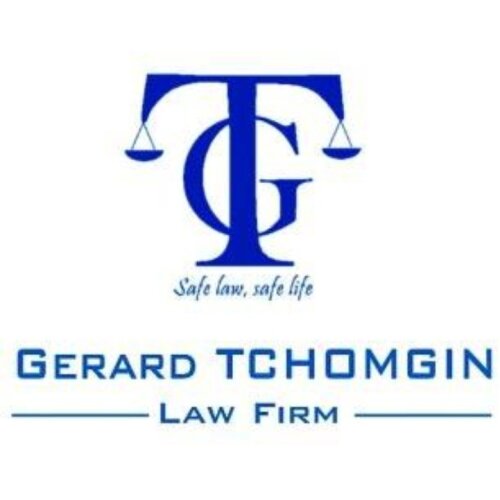Best Environmental Law & Compliance Lawyers in Cameroon
Share your needs with us, get contacted by law firms.
Free. Takes 2 min.
Or refine your search by selecting a city:
List of the best lawyers in Cameroon
About Environment Law in Cameroon
Environment law in Cameroon broadly encompasses a whole range of statutes and regulations committed to the protection and conservation of the environment. These laws cater to the management of natural resources, wildlife conservation, waste management, air and water pollution control, along with handling other issues that directly or indirectly affect the natural environment and biodiversity. The legal framework of Cameroon's environment is subject to both national laws as well as international treaties and conventions that the country has ratified.
Why You May Need a Lawyer
All stakeholders, from individuals to commercial businesses, may require legal advice in the field of environment law in Cameroon. For corporations, something as ostensibly simple as initiating a new construction project can turn into a statutory nightmare without proper legal support to navigate the environmental impact assessments or secure necessary permits. Individuals battling a pollution-related health concern or dealing with land disputes can also benefit from legal advice. Additionally, environmental activists seeking to advocate for stronger protections or challenge policies can also greatly benefit from legal counsel well-versed in this specific law area.
Local Laws Overview
Cameroon's environmental laws take their primary shape under the Framework Law No. 96/12 of August 5, 1996, on environmental management. This law seeks to ensure the preservation, protection, and enhancement of the environment. It is supplemented by the Environment Management Decree No. 2005/0577/PM of February 23, 2005, which determines the procedures for environmental impact assessments. Moreover, Cameroon has ratified numerous international treaties, like the Convention on Biological Diversity, the Banjul Charter on Human and Peoples' Rights, and the Paris Agreement on climate change, making these important aspects of environmental law in the country.
Frequently Asked Questions
Who enforces environmental laws in Cameroon?
The Ministry of Environment and Sustainable Development is the primary governmental body responsible for implementing and enforcing environmental laws and policies in Cameroon.
Can I file a lawsuit if a company is polluting near my home?
Yes, you have the right to take legal action against any entity causing environmental damage, including pollution, that disproportionately affects your property or health.
Does Cameroon have specific laws for wildlife protection?
Yes, Cameroon has laws and regulations aimed at preserving its rich biodiversity. These rules regulate hunting, trafficking, and habitat destruction.
Are there any clauses for the protection of indigenous peoples' land rights in Cameroon's environment laws?
Issues related to land rights and indigenous communities often intersect with environmental laws. Still, explicit codes addressing these issues might be located in other areas of the country's legal system. A legal expert can provide you further guidance.
What role does international law play in shaping environmental law in Cameroon?
International conventions ratified by Cameroon become part of national law, placing obligations on the government to implement those agreements domestically.
What responsibilities do companies have under Cameroon's environmental laws?
Companies operating in Cameroon have numerous obligations to ensure their operations do not injure the environment. They are required to conduct environmental impact assessments and adopt measures to mitigate any harmful effects.
Can an individual be punished under environmental laws?
Yes, individuals violating environmental laws, such as illegal hunting or disposal of hazardous waste, can face legal repercussions.
What about Cameroonian laws on climate change?
Cameroon, as a party to international agreements like the Paris Climate Agreement, is committed to tackling climate change. National policies and regulations are in line with international standards and obligations.
Do environmental laws address water and air pollution?
Yes, environmental law in Cameroon covers pollution issues, including air pollution and water pollution. Any violations can result in legal penalties.
How can I report environmental violations?
Reporting environmental infringements can often be done through governmental bodies like the Ministry of Environment and Sustainable Development or local environmental protection agencies.
Additional Resources
Government bodies like the Ministry of Environment and Sustainable Development, the National Agency for Environment and Sustainable Development, and the Ministry of Forest and Wildlife are notable resources. Other non-governmental organisations like The Center for Environment and Development and Cameroon Ecology can be helpful for someone seeking legal advice related to environmental concerns.
Next Steps
If you require legal assistance in environmental concerns, your next step would be to engage a lawyer specialising in environmental law. Try to gather as much documentation as possible related to your case and articulate your concerns clearly when consulting the legal expert. It will help not only in understanding your situation better but will also enable them to provide you with suitable advice.
Lawzana helps you find the best lawyers and law firms in Cameroon through a curated and pre-screened list of qualified legal professionals. Our platform offers rankings and detailed profiles of attorneys and law firms, allowing you to compare based on practice areas, including Environmental Law & Compliance, experience, and client feedback.
Each profile includes a description of the firm's areas of practice, client reviews, team members and partners, year of establishment, spoken languages, office locations, contact information, social media presence, and any published articles or resources. Most firms on our platform speak English and are experienced in both local and international legal matters.
Get a quote from top-rated law firms in Cameroon — quickly, securely, and without unnecessary hassle.
Disclaimer:
The information provided on this page is for general informational purposes only and does not constitute legal advice. While we strive to ensure the accuracy and relevance of the content, legal information may change over time, and interpretations of the law can vary. You should always consult with a qualified legal professional for advice specific to your situation.
We disclaim all liability for actions taken or not taken based on the content of this page. If you believe any information is incorrect or outdated, please contact us, and we will review and update it where appropriate.
Browse environmental law & compliance law firms by city in Cameroon
Refine your search by selecting a city.












